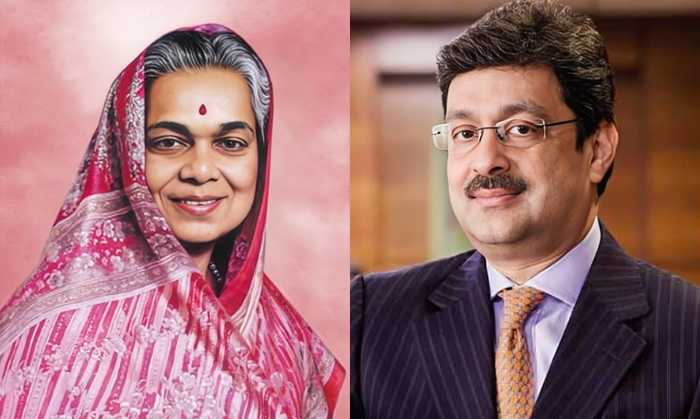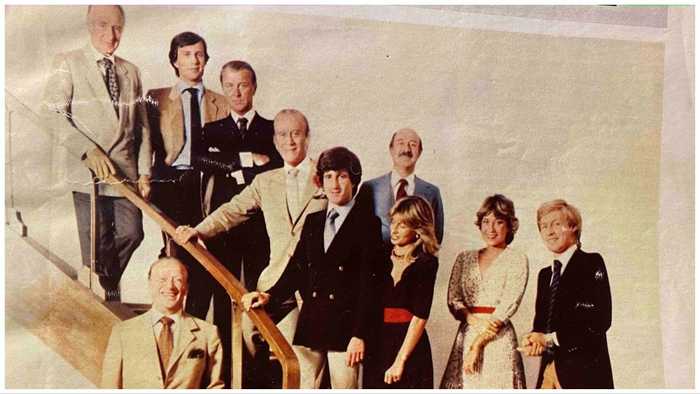Published 17:21 IST, May 1st 2024
The recent split in Godrej is not an example of a family feud as the 127-year-old business was split amicably without any uproar.
Advertisement
Split in Business: The saying that never do business with family and friends seems absolutely on point when you look back at the bitter family business feuds that broke out and rocked the Indian business families. However, the family business feud is not confined only to India, as many family business feuds have rocked the world repeatedly.
The recent split in Godrej is not an example of a family feud as the 127-year-old business was split amicably without any uproar but the world and Indian business history is replete with examples of family feuds leading to split in the company- be it Reliance’s Mukesh and Anil Ambani, Priyamvada Birla and HarshVardhan Lodha, Adolf and Rudolf Dassler of Adidas and Puma respectively and the Gucci family.
The latest one is the split of 127-year-old conglomerate Godrej stands out as the one for settling issues and differences amicably, not only splitting the group into two factions but also shedding the light on next generational leaders.
The Godrej Group, with a legacy spanning 127 years and diverse interests from door locks to consumer products, is meticulously charting a course to divide its assets among family members without discord. Led by patriarchs Adi and Jamshyd Godrej, the family is orchestrating a complex restructuring to distribute holdings equitably among the five senior members.
Where did it all begin?
Advertisement
The Godrej saga began in 1897 when Ardeshir and Pirojsha Godrej ventured into lock-making in Mumbai, evolving into a global powerhouse across consumer goods, real estate, and more. Now, as the reins passes on to the next generation, a new cadre of leaders has emerged. Adi's son, Pirojsha, spearheads Godrej Properties, commanding the highest market valuation within the group. Meanwhile, his daughter Nisaba oversees Godrej Consumer Products, a standout performer in the portfolio.
This transition isn't just about familial succession; it's a strategic overhaul aimed at maximising shareholder value. While the Godrejs maintain a low profile typical of Mumbai's Parsi business elite, their influence resonates across industries. Yet, unlike the public spats that mar other family successions, the Godrejs are executing their plan with discretion, eschewing courtroom battles.
However, the road ahead isn't without challenges. Untangling intricate cross-holdings and tax implications demands meticulous planning. The crown jewel, a sprawling land parcel in Mumbai's Vikhroli, around 3,400 acre of land parcel presents both opportunity and complexity. As the family navigates legal and developmental hurdles, the stakes are high for this multibillion-dollar asset.
Advertisement
Some family business feuds
Birla Family
Advertisement
Birla Corporation, known for its understated presence in the business world, was thrust into the spotlight due to the contentious will of Priyamvada Birla, a departure from the reserved nature of the Birla family, renowned for its contributions to the Indian freedom movement. At the centre of the controversy were the assets of a jute and cement manufacturer. Priyamvada's decision to leave her estate, valued at approximately Rs 5,000 crore, to Kolkata-based chartered accountant Rajendra Singh Lodha, stunned the usually tranquil Birla House. Lodha, the sole executor of the purported will allegedly written in 1999, disclosed its contents shortly after Priyamvada's passing.

Three generations of Birlas, along with Madhav Prasad's relatives and heirs, expected the estate to benefit charitable trusts. However, Lodha's emergence as both executor and beneficiary sparked a fierce legal battle between the Birla family and Lodha.
Advertisement
Ambani Vs Ambani
India's Supreme Court has settled the long-standing dispute between billionaire brothers Mukesh and Anil Ambani over control of the nation's largest gas reserve, siding with Mukesh and granting the government authority to regulate gas prices. The rift dates back to 2002 following the passing of their father, Dhirubhai Ambani, founder of the Reliance business empire. Tensions escalated publicly in 2004, leading to a settlement brokered by their mother in 2005. The formal division of the Reliance group occurred in 2006, with Mukesh overseeing Reliance Industries and Anil heading the Anil Dhirubhai Ambani Group. The legal battle over gas supply began in 2009, culminating in the Supreme Court's landmark ruling in May 2010.
Advertisement

Puma And Adidas
Adolf and Rudolf Dassler founded a shoe company in Herzogenaurach, Germany, in 1924. Their differing personalities led to tensions, escalating during World War II. They split in 1948, with Rudolf founding Puma and Adolf, Adidas. The rivalry divided their hometown, where both companies still have factories. Despite never reconciling, employees from both factories played football together on Global Peace Day in 2009, symbolically ending the feud.

Source: Variety
The Gucci Family
The renowned Gucci brand traces its roots back to Guccio Gucci's leather goods production in 15th-century Italy. However, it wasn't until 1906 that the modern Gucci brand was founded in Florence, starting in a saddlery. Guccio's sons, Aldo and Rodolfo, later took the reins, steering the company to remarkable growth. Yet, financial scandals and family conflicts tarnished the brand's image over time. Among the family disputes, Paolo Gucci filed lawsuits against his father, Aldo, other relatives, and the company. Countersuits were filed to prevent Paolo, a designer, from launching a competing leather line under the Gucci name. However, Paolo's suits were dismissed in 1980.

Source: Pinterest
The bitter battles for control of the high-fashion retail empire led to the sale of nearly half of Guccio Gucci S.p.A. to a Middle Eastern investment banking firm in 1988. Today, the Gucci Group is owned by the French multinational company Kering.
15:44 IST, May 1st 2024